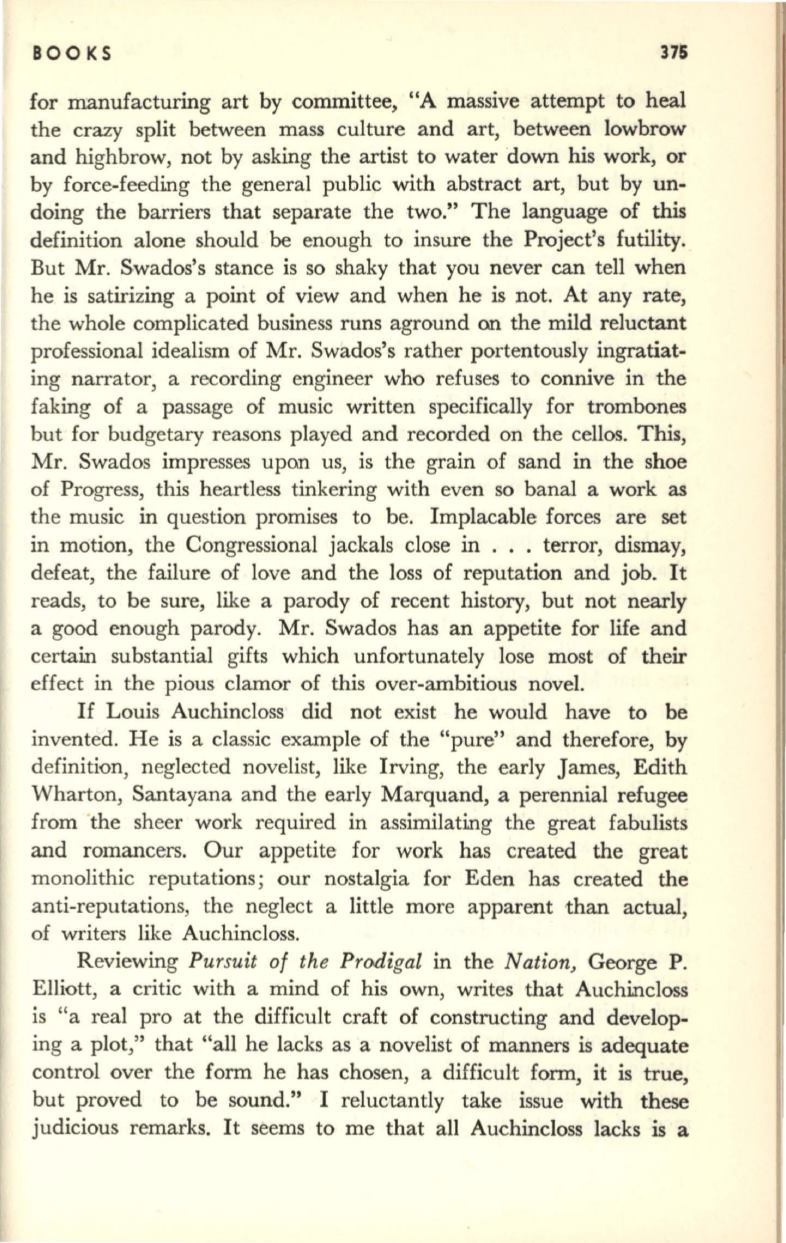
BOO KS
375
for manufacturing art by committee, "A massive attempt to heal
the crazy split between mass culture and art, between lowbrow
and highbrow, not by asking the artist to water down his work, or
by force-feeding the general public with abstract art, but by un–
doing the barriers that separate the two." The language of this
definition alone should
be
enough to insure the Project's futility.
But Mr. Swados's stance is so shaky that you never can tell when
he is satirizing a point of view and when he is not. At any rate,
the whole complicated business runs aground on the mild reluctant
professional idealism of Mr. Swados's rather portentously ingratiat–
ing narrator, a recording engineer who refuses to connive in the
faking of a passage of music written specifically for trombones
but for budgetary reasons played and recorded on the cellos. This,
Mr. Swados impresses upon us, is the grain of sand in the shoe
of Progress, this heartless tinkering with even so banal a work as
the music in question promises to be. Implacable forces are set
in motion, the Congressional jackals close in ... terror, dismay,
defeat, the failure of love and the loss of reputation and job. It
reads, to be sure, like a parody of recent history, but not nearly
a good enough parody. Mr. Swados has an appetite for life and
certain substantial gifts which unfortunately lose most of their
effect in the pious clamor of this over-ambitious novel.
If
Louis Auchincloss did not exist he would have to be
invented. He is a classic example of the "pure" and therefore, by
definition, neglected novelist, like Irving, the early James, Edith
Wharton, Santayana and the early Marquand, a perennial refugee
from the sheer work required in assimilating the great fabulists
and romancers. Our appetite for work has created the great
monolithic reputations ; our nostalgia for Eden has created the
anti-reputa tions, the neglect a little more apparent than actual,
of writers like Auchincloss.
Reviewing
Pursuit of the Prodigal
in the
Nation,
George P.
Elliott, a critic with a mind of his own, writes that Auchincloss
is "a real pro at the difficult craft of constructing and develop–
ing a plot," that "all he lacks as a novelist of manners is adequate
control over the form he has chosen, a difficult form, it is true,
but proved to be sound." I reluctantly take issue with these
judicious remarks. It seems to me that all Auchincloss lacks
is
a


